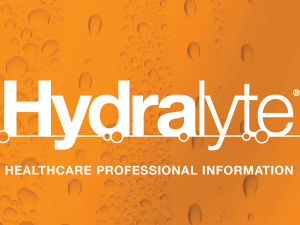Adult attention deficit hyperactivity disorder is a fairly new and exciting area of research in psychiatry. In this article, Sidhesh Phaldessai examines our increasing understanding of the symptom presentation and management of this neurodevelopmental disorder in adults
Gender-affirming care in pharmacies
Gender-affirming care in pharmacies

Clinical pharmacist Katrina Azer discusses the importance of gender-affirming care in pharmacies
As a newly registered pharmacist, I thought it was a dispensing error when a male patient was prescribed oestrogen. I thought it was for the wrong patient.
Feeling quite proud of myself for picking up on an error, I quickly approached the patient to verify the prescription. But to my surprise, the patient was, in fact, male and had been intentionally prescribed oestrogen. I thought to myself, how could this be? Had the doctor made a mistake?
Luckily, the patient was willing to educate me on gender transitioning.
It was a moment I will never forget. I felt like a complete fool, realising my assumptions and preconceptions had led me astray and that I had a significant gap in my knowledge. It was a tough lesson, but it ultimately made me a better pharmacist.
I took it upon myself to learn as much as I could about hormone therapy and gender identity so that I could provide the best possible care for all my patients.
Gender-affirming health education is a massive gap in pharmacy. It is one that I hope is now covered in undergraduate curricula, as it certainly wasn’t 15 years ago.
Gender-diverse patients face a significant health-equity gap. As healthcare providers, we are responsible for providing equitable care to all patients, regardless of age, identity, ethnicity, religion or gender. Gender-affirming care is a critical aspect of healthcare for transgender and gender-diverse individuals. It involves providing healthcare that is sensitive, respectful and appropriate to gender identity.
In this article, we will explore gender identity terminology, the challenges gender-diverse populations face, and the role of pharmacists in providing gender-affirming care.
Gender identity terminology can be confusing for many, but it is essential to understand it. Gender identity refers to a person’s sense of their own gender, whether male, female, or something entirely different. It is not the same as biological sex, which refers to a person’s anatomy and reproductive organs.1
Pronouns are words used to refer to a person without using their name. Common pronouns include he/him, she/her, and they/them. These pronouns can have different meanings depending on the gender identity of the person they refer to.
He/him pronouns are typically used to refer to individuals who identify as male, while she/her pronouns are typically used to refer to individuals who identify as female. However, it’s important to note that not all individuals identify as male or female and may not use these pronouns.
This is where they/them pronouns come in. They/them pronouns can be used as a gender-neutral option for individuals who do not identify as male or female (ie, non-binary) or individuals who do not wish to disclose their gender identity. Respecting an individual’s pronoun preference and using it consistently is essential for providing safe, respectful and gender-affirming care.
It can help to create a welcoming and safe environment for individuals who may face discrimination or feel uncomfortable discussing their gender identity. As healthcare professionals, it is important to ask for and use an individual’s preferred pronouns and avoid making assumptions based on their appearance or voice, which can have a significant impact on an individual’s healthcare experience. By asking for and using an individual’s preferred pronouns, we can create a more inclusive and welcoming healthcare environment for all patients.1
Many transgender and non-binary individuals avoid healthcare altogether for fear of mistreatment, discrimination or harassment
Unfortunately, gender-diverse individuals face significant challenges in accessing healthcare. Discrimination, stigma and a lack of understanding among providers can make it difficult for transgender and non-binary individuals to find providers who are knowledgeable and supportive of their gender identity. Many transgender and non-binary individuals avoid healthcare altogether for fear of mistreatment, discrimination or harassment. This can lead to delays in seeking care or missing out on essential services.
A pharmacist’s unconscious bias can prevent gender-diverse individuals from receiving appropriate care. Unconscious bias refers to attitudes or stereotypes that affect our understanding, actions and decisions without us realising it. Recognising and overcoming unconscious biases is important in ensuring equitable care for all patients. Pharmacists should be sensitive to language and communication, recognise gender-affirming care as a human right and understand the unique needs of gender-diverse individuals.2
Understandably, we all hold our own cultural and religious beliefs, identities and values. Our identification with a specific religion should not stand in the way of us providing equitable, respectful healthcare, regardless of our spiritual standing; it is every individual’s fundamental right to respectful care. By letting our beliefs manifest in our interactions with others, we unconsciously deprive them of their right to respectful, non-biased healthcare. Our professional obligation is to provide equitable care; it is also our moral and ethical duty. Although some people might think it’s acceptable to treat people in ways that align with their own beliefs, we should respect and adhere to the cultural and religious beliefs of others. This does not diminish our own faith, and no religion promotes disrespecting others because of their beliefs.
Pharmacists are uniquely positioned to provide gender-affirming care to transgender and non-binary individuals. As front-line healthcare providers, pharmacists often have direct contact with patients and can provide information and support specific to the needs of gender-diverse individuals. Pharmacists can also work with healthcare providers to ensure that medications and other treatments are appropriate and safe for transgender and non-binary individuals.2
Pharmacists play a crucial role in medication management for individuals undergoing gender-affirming care. This includes ensuring the safe and accurate dispensing of medications, such as medications used for medical gender transitions and hormonal therapies, educating patients on medication use and potential side effects, and monitoring for drug interactions or adverse reactions. For example, a transgender woman may be prescribed oestrogen to promote breast development and reduce body hair growth. Similarly, a transgender man may be prescribed testosterone to promote facial hair growth and deepen his voice.
It’s important to note that hormone therapy should be tailored to an individual’s specific needs and monitored closely by healthcare professionals. Regular monitoring of hormone levels and potential side effects can help ensure safe and effective treatment. In addition to hormone therapy, surgical intervention may also be part of gender-affirming care for some individuals; pharmacists, as a provider patients see most often, play a crucial role.
By working collaboratively with other healthcare professionals, pharmacists can help provide comprehensive and individualised care for those seeking gender-affirming care.
Creating safe spaces for gender-diverse communities is crucial. Pharmacies can serve as safe spaces for gender-diverse individuals by providing gender-affirming care, which can help reduce the barriers to accessing healthcare.
Privacy and confidentiality are critical when providing gender-affirming care. Patients should feel comfortable discussing their gender identity with their pharmacist and receiving appropriate care without fear of judgement or discrimination. Pharmacists should ensure they are sensitive to patients’ needs and keep their information confidential.
Some steps that can be implemented to make pharmacies more inclusive include:
- adding pronouns to patients’ records in dispensary software
- using pronouns when communicating with gender-diverse patients
- adding pronouns to staff name badges
- making changes to the physical environment, such as using gender-neutral restrooms
- training staff on gender-affirming healthcare
- displaying signs or stickers that indicate support for the LGBTQ+ community
- offering discreet packaging and prescription labels that do not reveal sensitive medical information
- ensuring privacy and confidentiality – in community pharmacies, where unplanned encounters can occur, privacy is crucial when calling out the names/pronouns of patients undergoing gender transitioning.
These steps can help signal to gender-diverse patients that they are welcome and valued.
In conclusion, gender-affirming care is essential for the health and wellbeing of transgender and gender-diverse individuals. Understanding gender identity terminology, recognising and overcoming unconscious bias and creating safe spaces for gender-diverse communities are all critical aspects of providing gender-affirming care.
Pharmacists can play a vital role in providing gender-affirming care by providing information and support, working with healthcare providers and creating safe spaces for gender-diverse individuals. We must ensure all patients have access to equitable healthcare that meets their unique needs, regardless of gender identity. By working to increase our knowledge and awareness, we can help reduce the health-equity gap and provide high-quality healthcare to all patients.
Learn more in “CLASStime: Gender-affirming healthcare”, Pharmacy Today, August 2021
1. Sevelius JM, Chakravarty D, Dilworth SE, Rebchook G, Neilands TB. Gender affirmation through correct pronoun usage: Development and validation of the Transgender Women’s Importance of Pronouns (TW-IP) Scale. Int J Environ Res Public Health 2020;17(24):9525. doi: 10.3390/ijerph17249525.
2. Redfern JS, Jann MW. The evolving role of pharmacists in transgender health care. Transgend Health 2019;4(1):118–30. doi: 10.1089/ trgh.2018.0038.





